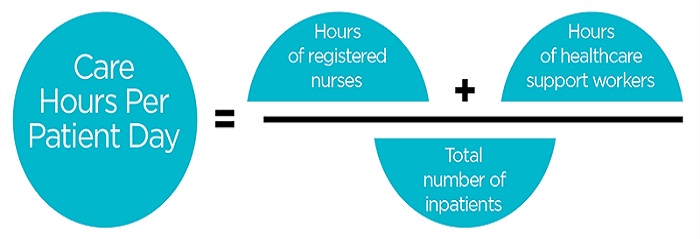We often mistakenly assume that because nurses typically answer to physicians, that they are not leaders themselves. This isn’t true at all. In fact, nurses are often among the most important leaders in a medical setting, because they organize and distribute teams of other nurses and assistants that are responsible for the everyday patient care that makes a clinic or hospital run.
If you’re a nurse, work with nurses or train nurses, it’s helpful to not only understand that they are leaders, but to help them develop or deepen leadership skills to the benefit of the entire medical team. Let’s take a look at seven of the most important leadership skills, which not only nurse leaders, but every nurse should possess.
#1 Emphasizing and Making Room for Reflection

Reflection sounds like an activity that 6th graders do after they finish a textbook chapter, and as such, has kind of a hokey reputation. But in point of fact, reflecting is one of the most valuable activities in a workplace setting. Nurses that emphasize the importance of reflection, either on their own time or during meetings, stand the best chance of becoming good leaders.
While there is always a place for personal reflection on what went well and what didn’t during a surgery, over the course of a shift or throughout a month, reflection is particularly effective during meetings. Nursing Times explains that a three-point system involving team reflection, ensuring all team members participate, and establishing ways of working/ground rules will help ensure that all involved get the most out of the reflection exercise. Nurses who do this with their teams, or who encourage their peers to do so, can help enhance team effectiveness and workplace satisfaction overall.
#2 Teaching Time Management

Time management is crucial for nurses. Most have more on their plates than they’d like. Between paperwork, speaking with other members of the medical team, filling out charts, visiting patients, scrubbing down, trying to find time for bathroom breaks, and the hundred other duties and tasks to which they must turn their attention on any given day, nurses without a good grasp of time management often sink rather than swim.
To avoid this, nurses must learn to block out their hours in a meaningful way. According to Villanova University, this involves organizing, planning, prioritizing and scheduling. Each of these steps creates a smoother system, from maintaining clean inboxes to knowing what needs to happen to setting a list of priorities to setting aside specific periods of time in which to get them done. Nurses who maintain such a system become natural leaders to those around them, who begin to count on them for their unflappable management skills.
#3 Communicating Effectively

Effective leadership is impossible without effective communication. Whether you’re a team leader, manager or just a nurse among other nurses, knowing how to convey complex ideas and information in a calm and straightforward manner is crucial. Lives may depend on it, in fact, so the nurse who can successfully do this will usually become a role model to others.
To communicate effectively, nurses must follow a similar paradigm to time management. They must organize their thoughts, plan how to convey them most effectively, prioritize the delivery of information, and when necessary, schedule times to sit down with others and exchange that information.
#4 Prioritizing EQ

You’ve heard of intelligence quotient (IQ), but have you heard of emotional quotient (EQ)? While this isn’t a frequently discussed leadership skill, it really should be. Sure, being smart helps you perform more effectively and grasp complex topics intuitively. But that isn’t all there is to it.
Real leaders need a high EQ, because it allows you to interact effectively with others. Managing relationships – both between yourself and others, and between two or more other parties – is crucial, as is understanding the place of rewards and motivations in the work environment. To lead, you need to understand how to appropriately escalate situations where discipline is needed. And lastly, it’s important to comprehend the role stress plays in a healthy working environment, and to help mitigate it in those around you, as well as yourself.
#5 Paying Attention to the Right Metrics

Numbers can tell you a lot about how well a particular facility is functioning. If you want to be a good nurse, one of the best leadership skills you can develop is to intuitively check various metrics. These might include:
- Patient outcomes and patient satisfaction
- The percentage of times a patient’s follow-up visit is scheduled with the same doctor
- The average length of time a patient stays in the hospital
- The average amount of time a patient gets with their overseeing physician and the nurses working under her or him
- Nursing continuing education
- Staff turnover and satisfaction
Of course, there are many other metrics you’ll learn to pay attention to as you develop your nursing leadership skills. Some of these are specifically related to quality care indicators, which means measuring exactly how well patients fare in a particular facility – usually a hospital when patients are staying for a while.
#6 Implementing Quality Care Indicators

Quality care indicators are critical in ensuring a hospital, clinic or other facility is serving its patients the best way it can. Understanding these indicators is important, but a nurse who can help draw others’ attention to the importance of these metrics is a real leader. According to the same Nursing Times article cited above, these include:
- Falls assessment
- Food and nutrition
- Pressure area care
- Pain management
- Patient observations
- Infection prevention and control
- Medicine prescribing and administration
Understanding the numbers behind these indicators can help nursing and medical teams focus on minimizing negative consequences and boosting positive outcomes.
#7 Expecting Excellence

The “self-fulfilling prophecy” is often incorrectly understood to mean that whatever you believe of yourself will come true. This is inaccurate: The true meaning of a self-fulfilling prophecy is that what you expect of another will come true. In other words, the expectations you set of someone else weigh heavily on their success or failure, which is why it’s so critical to expect the absolute best from those under you.
That doesn’t mean you should set your expectations internally and hope others around you will read those expectations. Rather, you should make it clear what your expectations are. If you are responsible for a team, you should tell your subordinates exactly what you hope to see them accomplish and what goals you expect them to meet. If you don’t yet manage anyone else, you can still be a leader to your peers by always performing your best, going above and beyond what’s asked of you, and working to create the type of environment in which you want to work (rather than complaining when you don’t have it).
Bottom Line
As a nurse, a lot of people are counting on you. If you work with or train nurses, much also depends on your ability to impart these leadership skills to them, so that they can carry them back to their hospitals and other medical settings. When they do, they improve medical teams, patient care and the entire facility, so learning or teaching these crucial leadership skills is one of the biggest favors you can do the healthcare industry overall.

















